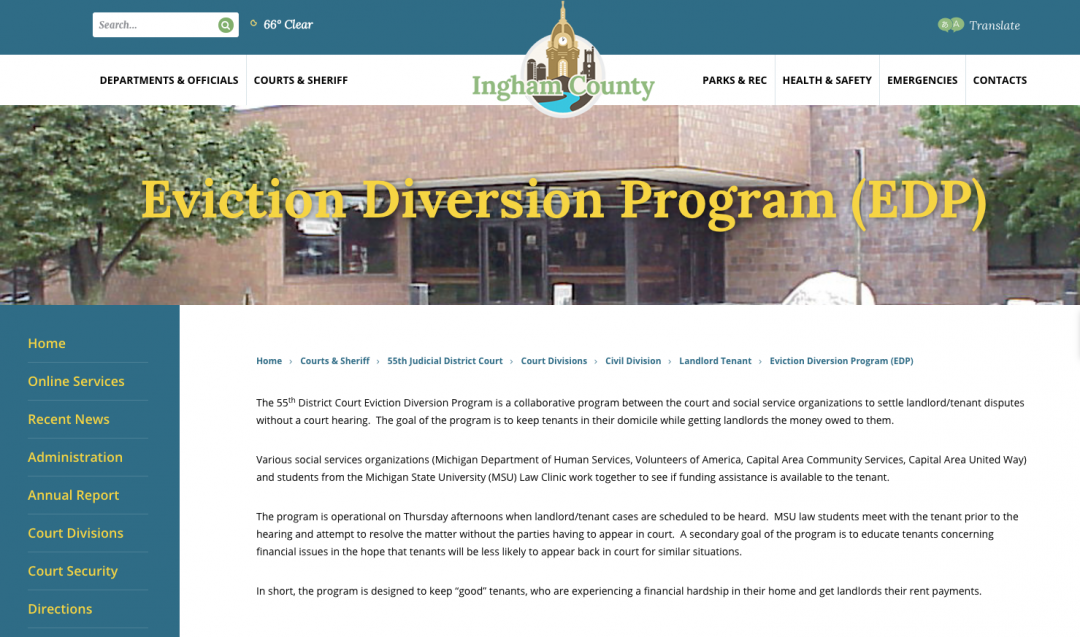
Eviction Diversion Program in Ingham County, MI
The court in Ingham County, Michigan has an Eviction Diversion Program to try to resolve eviction lawsuits and keep tenants housed.

The court in Ingham County, Michigan has an Eviction Diversion Program to try to resolve eviction lawsuits and keep tenants housed.

The city of Pittsburgh is launching an Eviction Diversion through Mediation program. This program offers free mediation services for landlords and tenants prior to filing for an eviction. It provides the same services for cases that have been filed but have not yet been granted a judgment.
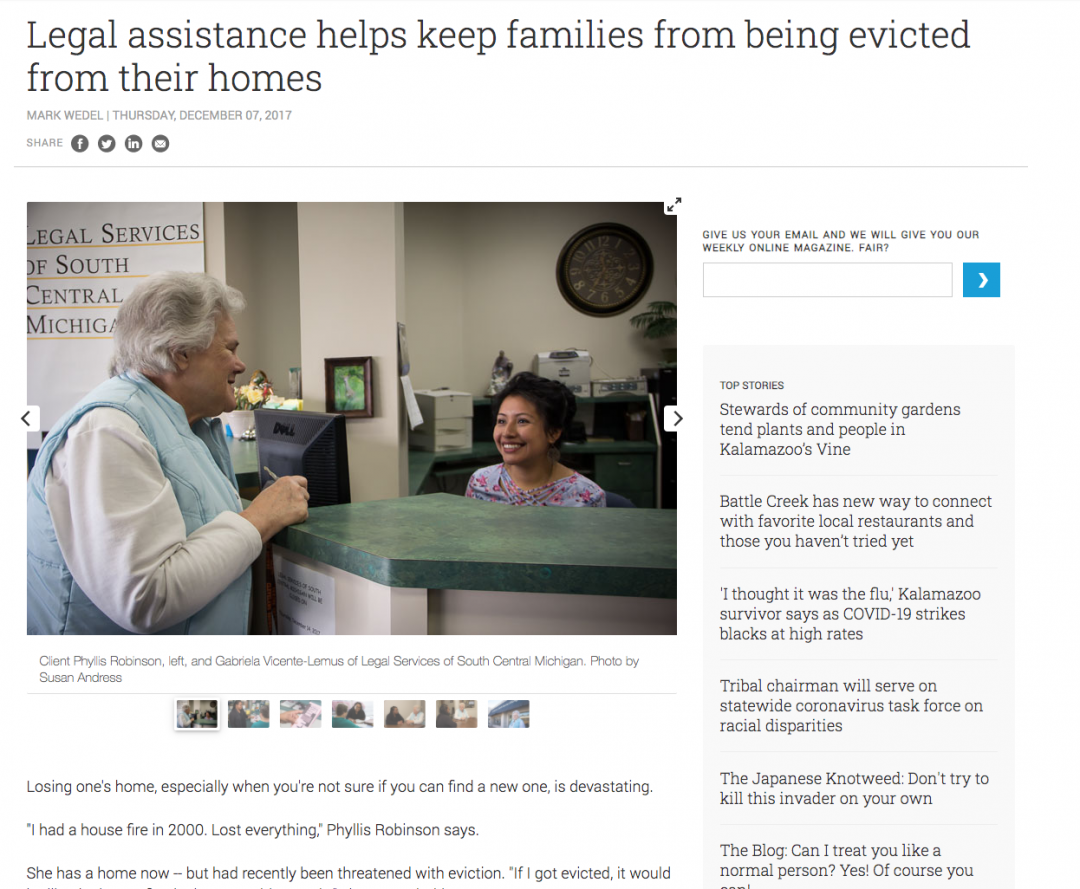
Jackson County, Michigan has an Eviction Diversion Program that lets tenants opt into the program, have mediation, legal services, and emergency assistance if they qualify. The goal is to help deal with underlying issues in the landlord-tenant relationship, and the holistic set of problems the tenant is dealing with.
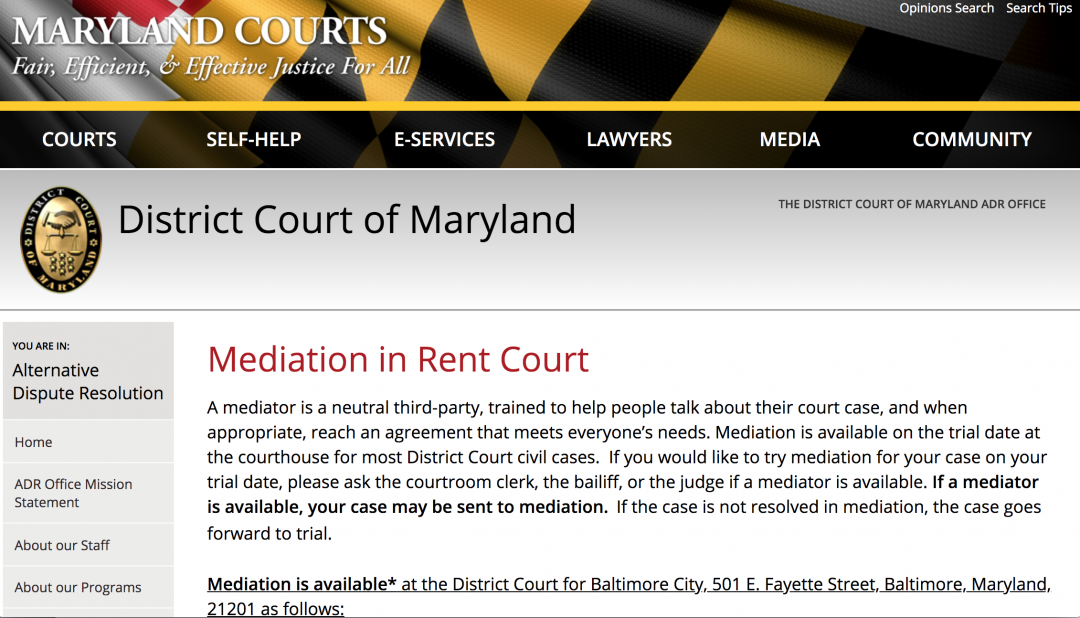
Baltimore Rent Court offers an in-court Mediation program for landlord-tenant issues. They provide a free 3rd party neutral to help the parties come to a settlement and avoid going to trial.
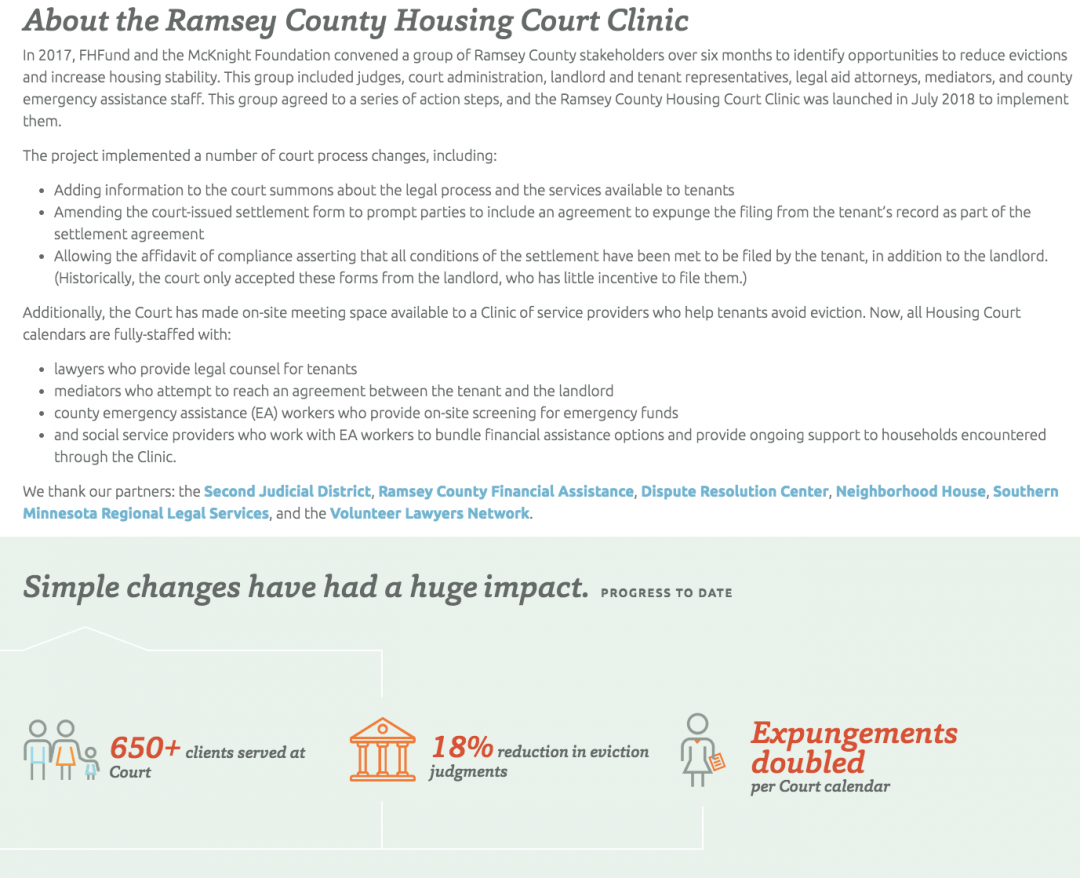
The Housing Court Clinic offers a suite of legal, dispute resolution, and financial help to tenants, as well as streamlined court process to help prevent evictions. The clinic has expanded to a Pre-Eviction neighborhood Crisis Clinic, to get the same co-located, holistic resources to tenants at a preventative stage.
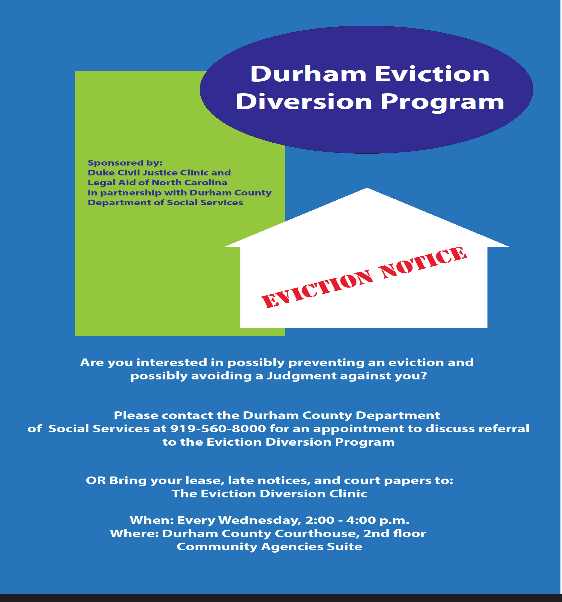
This program provides individuals facing eviction with free advice and support, ranging from emergency financial aid to legal council, with the goal of helping citizens avoid eviction judgements and decreasing the number of eviction filings and verdicts in Durham County.

The City of Syracuse Department of Neighborhood and Business Development invested in two eviction prevention programs focusing on early intervention services for tenants.
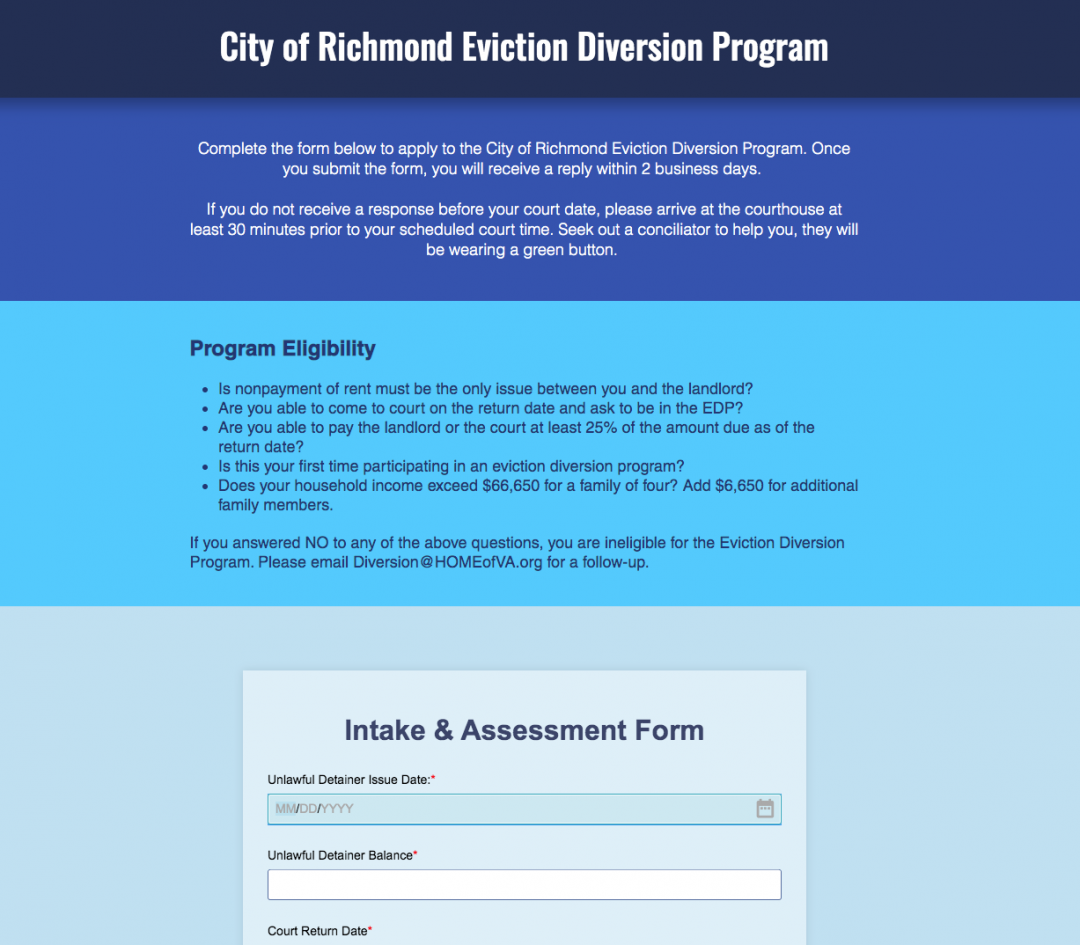
The Eviction Diversion program provides tenants who have received an unlawful detainer (and satisfy other eligibility criteria) with the opportunity (if their landlord agrees) to enter a voluntary conciliation procedure and to receive financial literacy education and financial assistance, as opposed to going through the court eviction process.